7 Foods That Could Quietly Shrink in Size After Tariffs
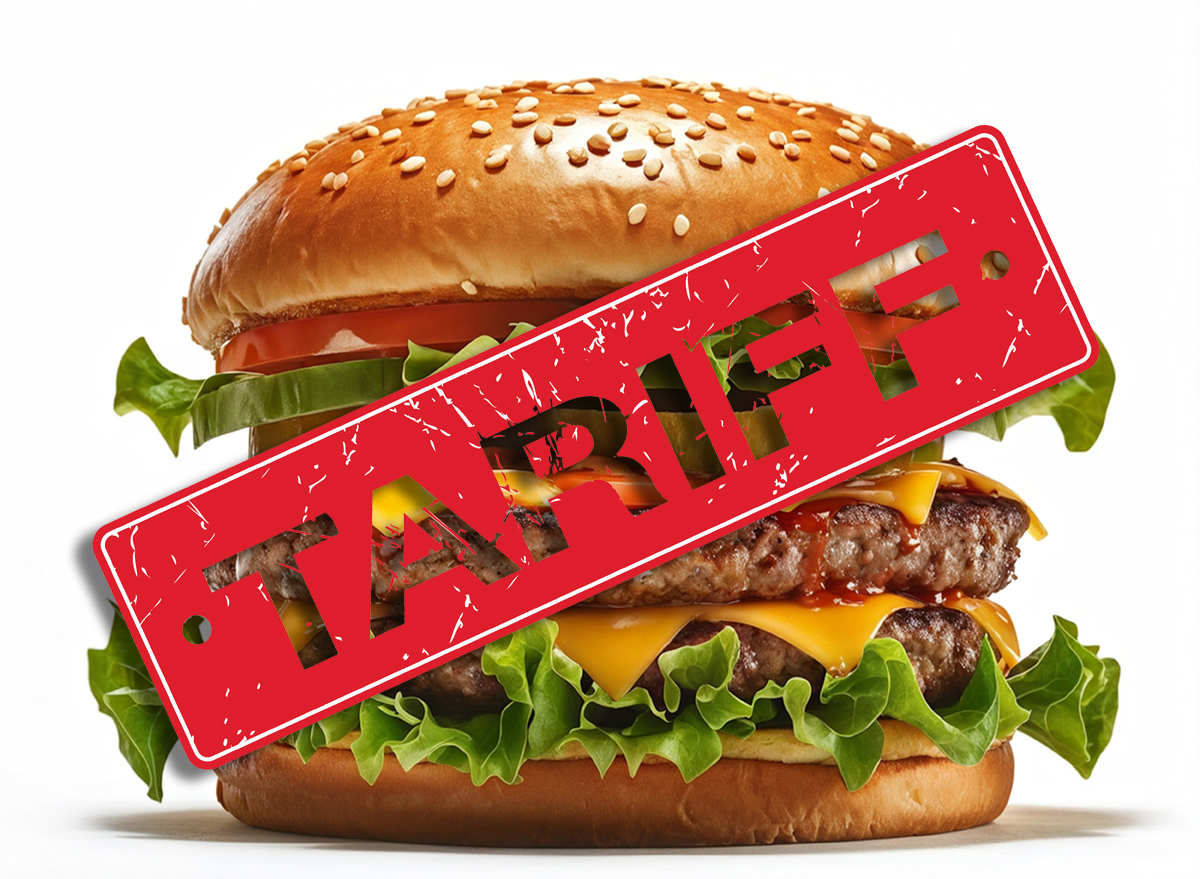
The trade war between the U.S. and parts of the world is causing uncertainty for businesses and consumers alike, with shoppers unsure of what might happen next. For the food industry, some companies—especially smaller ones—may have no choice but to either raise prices or change up their portion sizes to cut down on costs. A three-month pause on tariffs gives food companies some breathing room to plan ahead and prepare for the worst if necessary, and that might mean quiet shrinkflation to cover costs. Here are seven foods that might quietly shrink in size as the tariffs hit manufacturers.
Cereal
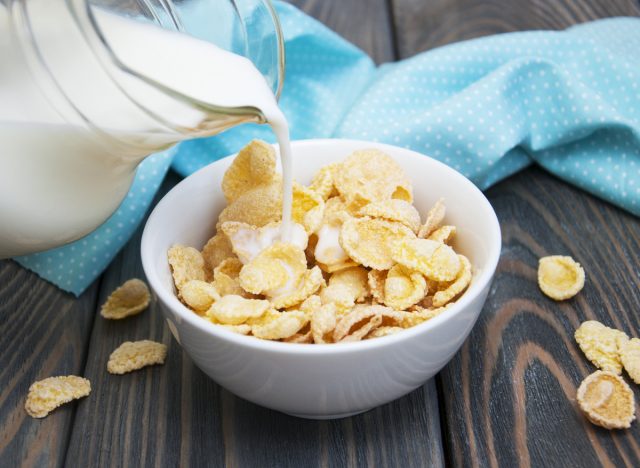
Boxes of oats and cereal that are imported could become smaller for the same price. “Consumers can prepare for the inflation that the tariffs are likely to exacerbate by getting into the habit of checking the unit price of items on the grocery shelf,” John Breyault, vice president of public policy, telecom and fraud at the National Consumers League, told PBS. “While not all states require it, where it is required, consumers can more easily compare the per unit price of one item — cereal, for example — to another item.”
Coffee

Almost all the coffee consumed in the U.S. is imported from overseas. Prices on coffee were already sky high before the tariffs, due to poor weather conditions and harvests, and if the tariffs impact coffee imports many companies may offer smaller packages of coffee for the same price. Organic coffee may cost even more.
Burgers
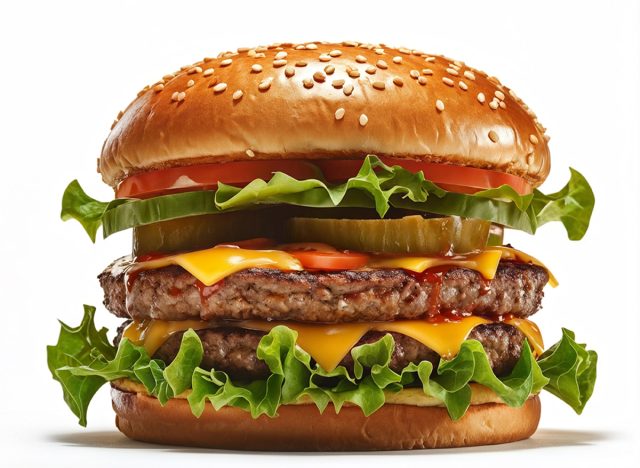
Fast food customers have complained for years that their favorite burgers and sandwiches are shrinking, and the tariffs could make this situation worse. Chains that rely on cheaper imported meat from Brazil, Australia, and New Zealand, may have to offer smaller sandwiches at the same price to offset costs.
Toilet Paper

Pulp used to make toilet paper and toilet paper rolls is imported from countries such as Canada. This might result in customers paying the same price or higher for smaller rolls, or fewer rolls per package. Eagle-eyed shoppers have caught certain brands already doing it. “Yeah it’s all designed to baffle the consumer so they can rip us off without most noticing,” one Redditor said.
Chocolate and Candy

The U.S imports cocoa beans from Africa and South America, which means bars of chocolate—which are already smaller—could become more expensive. “My store just got these sizes of Snickers recently, they’re .75 cents each and I didn’t notice until a customer pointed them out bc she found it hilarious how small they are,” one Redditor pointed out.
Snack Items
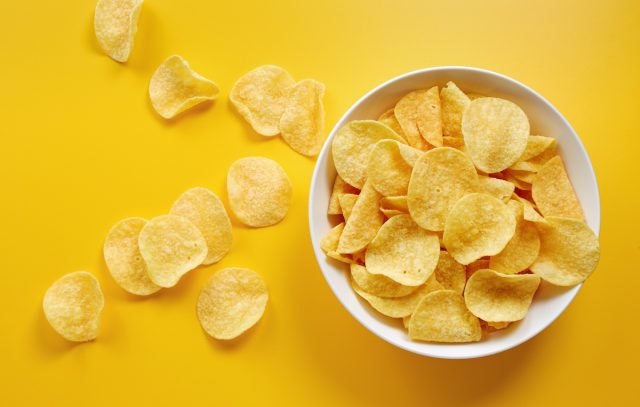
Snack items like chips may end up getting even smaller portions as a result of tariffs on packaging—but prices are likely to stay the same or go up. “Businesses know that customers don’t like when prices go up,” said LendingTree chief consumer finance analyst Matt Schulz. “Shrinkflation is a sneaky little way around that. Rather than bumping up the price of something, businesses make the product smaller while keeping the price the same. If done smartly, customers may not even notice. However, the problem is that when they do, it leaves the customer with a bad taste in their mouth because it feels so deceptive.”
Fish Sticks
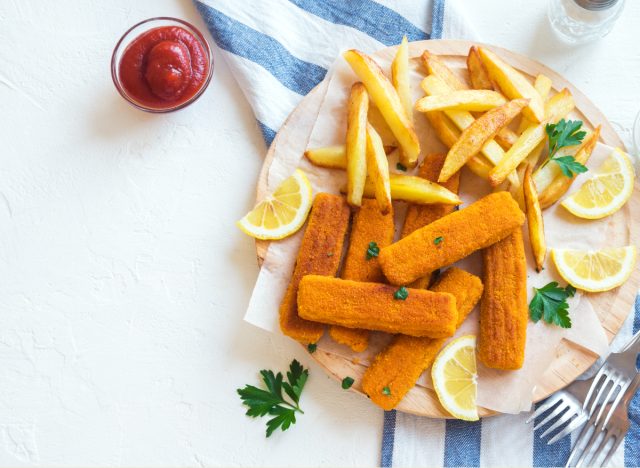
The frozen fish aisle in your supermarket could soon be offering less product for the same or more money. China exports a huge amount of frozen fish products to the United States, and remains the world’s largest seafood producer, according to the USDA. This could mean fewer fish sticks per package.
“People are already frustrated that things cost more,” Schulz said. “Shrinkflation just adds insult to injury. It all adds up to a lot of Americans feeling squeezed every month to afford the basic things they can’t do without.”